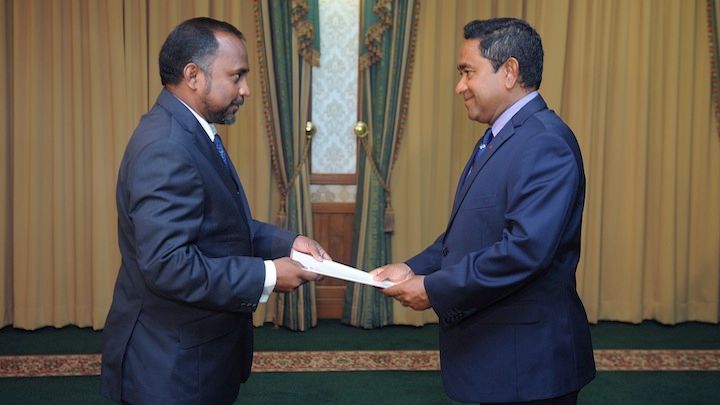Government seeks new fatwa council as opposition from religious scholars grows
The government is seeking to establish a supreme council on Islamic affairs to “to ensure religious unity, create awareness on religious issues, conduct scholars’ forums, and issue fatwas on religious disputes.”

27 Feb 2016, 09:00
The government is seeking to establish a supreme council on Islamic affairs to “to ensure religious unity, create awareness on religious issues, conduct scholars’ forums, and issue fatwas on religious disputes.”
An amendment proposed to the Religious Unity Act by ruling Progressive Party of Maldives MP Ahmed Rasheed Ibrahim proposes that the five-member council should include two members chosen by the president, a judge selected by the chief justice, a board member of the Islamic University and a member chosen by the ministry of Islamic affairs.
The members of the council, its president and vice president would be appointed by the president for a five-year term, and will function under the Islamic ministry, according to the amendments proposed last week.
The main opposition Maldivian Democratic Party has expressed concern over the move saying that the party fears “the council will enable President Yameen to use Islam as a political tool to demonise his opponents and create fear amongst the public.”
Become a member
Get full access to our archive and personalise your experience.
Already a member?
Discussion
No comments yet. Be the first to share your thoughts!
No comments yet. Be the first to join the conversation!
Join the Conversation
Sign in to share your thoughts under an alias and take part in the discussion. Independent journalism thrives on open, respectful debate — your voice matters.




